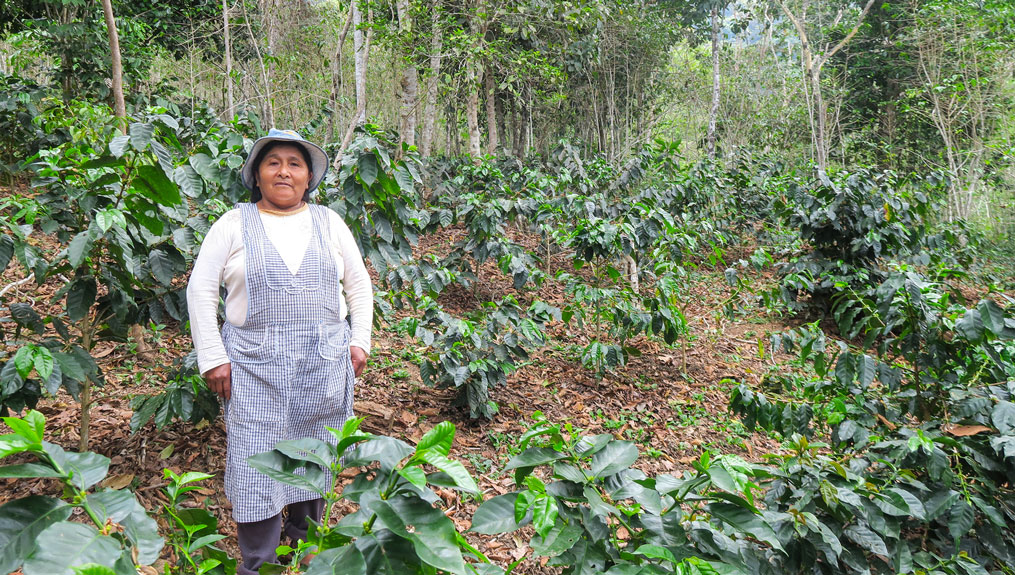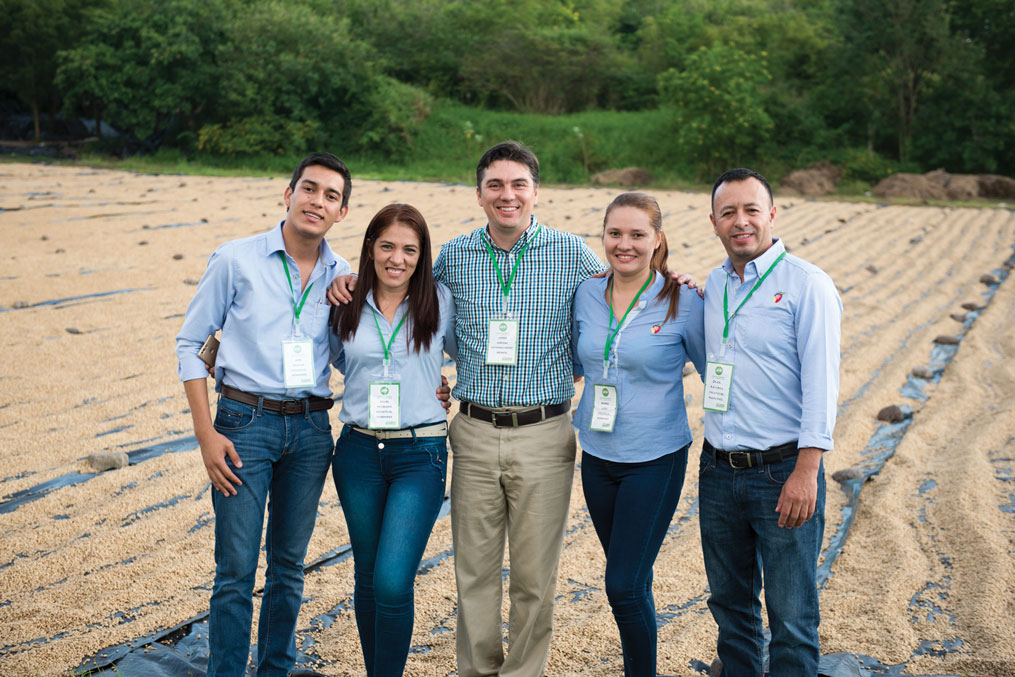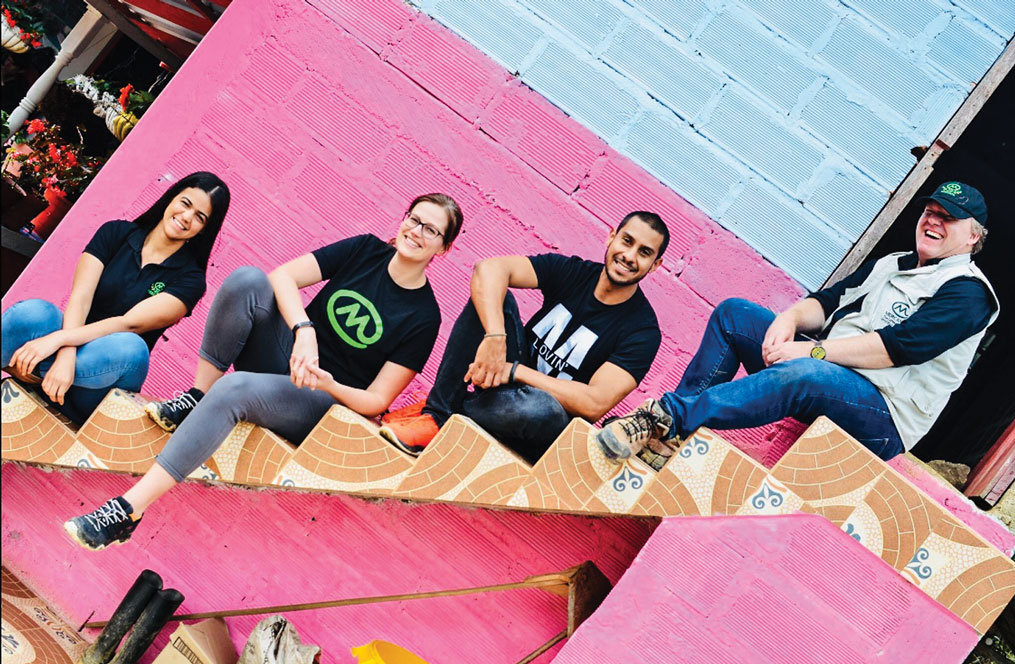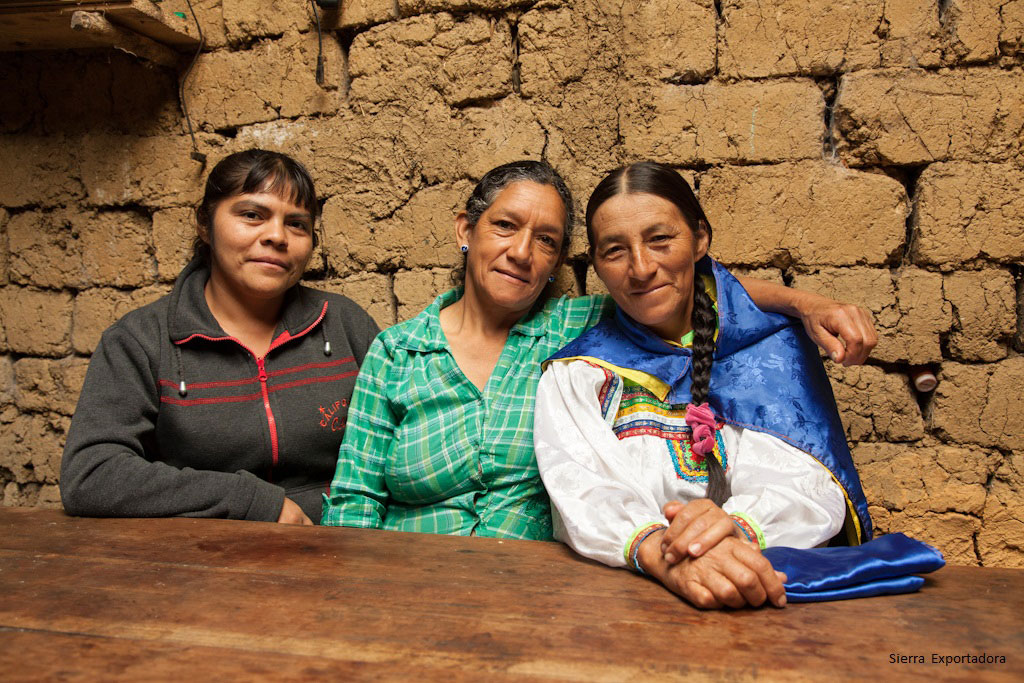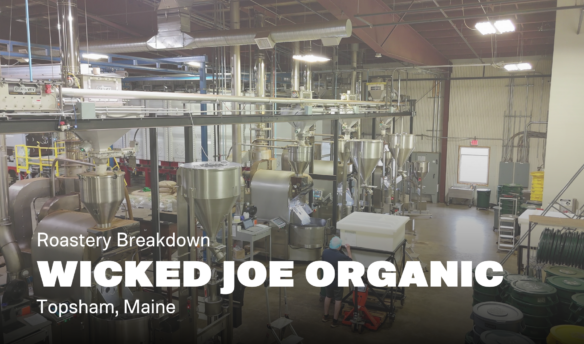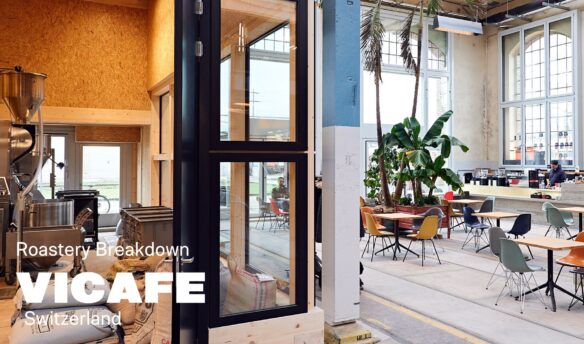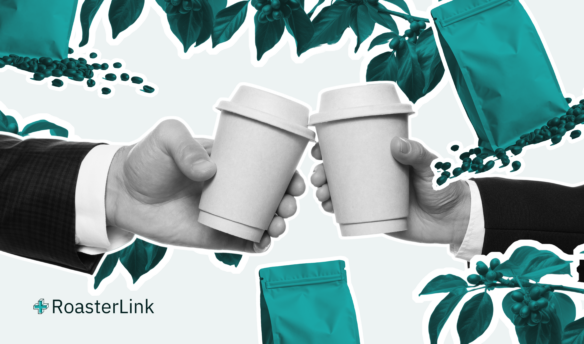Photo source: Organic Products Trading Company
Sustainability, as it relates to the coffee industry, is a broad term, and it can mean many things, from ethical pricing and environmental stewardship to energy-efficient production and green packaging.
But for many companies on the front lines of sustainable practices, the term—and the mission behind it—begins, primarily, by prioritizing fair dealings with farmers.
Beginning with a Mission
Portland, Oregon-based, specialty-grade green coffee importer Sustainable Harvest, which launched in 1997, “was never truly formed to be a coffee trading company first,” says Jorge Cuevas, the company’s chief coffee officer. “It was designed and built to be a company to deliver positive economic or social impact to coffee-growing communities.”
In other words, the leadership team at Sustainable Harvest views the coffee trade as a mechanism for doing good, rather than the end goal in and of itself.
“We never buy or sell coffee for the sake of it,” says Cuevas. “There’s always a higher purpose.”
For Sustainable Harvest, that higher purpose manifests in avoiding commodity pricing and focusing on areas where the company can add value to the coffee supply chain.
“Sometimes it may mean [seeking] certifications—Organic, Fair Trade, Rainforest Alliance, or any variation of those,” says Cuevas. “Sometimes it may mean [supporting] project coffees, like Youth Initiative or NextGen coffees—supporting folks 35 and under getting into coffee farming—which are coming on very strong.”
Fair Pricing
One critical way that mission-minded companies can add value to the coffee supply chain is, of course, by paying fair, sustainable prices for the coffees they are sourcing.
“We don’t buy anything below $1.80/pound. None, ever. That’s going back years,” says Stephen Hurst, who launched Mercanta, a United Kingdom-based specialty coffee supplier, in 1996. (Mercanta’s North American base opened in Seattle in 2006.) Today, the company has relationships with growers in 20 countries and sells to roasters in 40 countries across the globe.
“The only way to guarantee a fair and sustainable outright final contract price is to only buy at outright prices, and that is what Mercanta does. Our global average purchase price actually ranges annually between $2.25 and $2.50/pound and is currently easily double the current commodity price for coffee,” Hurst wrote last April in a Mercanta blog post explaining the company’s dedication to price guarantees.
Speaking recently by phone, Hurst further stressed his conviction that the current commodity price is simply too low for farmers to make a sustainable living wage.
“Ninety percent of the business is probably done on the commodity market,” he says. “People say, ‘That’s the way of the business, and everybody does it like that.’ But I disagree.”
“Being a good buyer means paying above market prices,” agrees Michelle Stoler, who handles green coffee purchasing and sales for Shared Source, a coffee buying team based in Melbourne, Australia, with U.S. operations in Portland, Oregon.
Shared Source’s team works to build candid dialogue with farmers in the four countries from which they currently source (Guatemala, Colombia, Ethiopia, and Kenya) to understand precisely “what kinds of prices they need not just to cover their costs of production but also to invest in their farms—and not just to invest in their work, but to thrive,” says Stoler.
Similarly, at Atlas Coffee Importers based in Seattle, the company “pays a price that’s not based on the market for the vast majority” of its coffees, says founder and CEO Craig Holt. “It’s based on cost production plus profitability. Working with growers, we find out what’s the baseline of their profitability, and we set our floor prices there.”
Building Real Relationships
Most mission-oriented importers agree: a sustainable coffee supply chain, in all its dimensions and tangents, can’t exist unless it first begins in a relationship with farmers based on trust and fairness.
“For us, being a good buyer means a lot of things, but specifically, returning year after year so that producers can count on us to make purchases from them,” says Stoler.
Building long-term partnerships with growers is key, agrees Holt.
“We are able to have very close personal relationships with our growers around the world,” he says. “We are able to see—viscerally, physically—what’s happening on the ground.”
Holt referenced Atlas’ more than 15 years of work in Colombia as one example of the partnerships at the heart of his coffee sourcing. There, a community of farmers previously involved in the illicit coca trade have transitioned into coffee thanks to a USAID initiative and other support.
“Their quality when we first bought it wasn’t good. We paid them well over the going rate for the coffee. And their first container wasn’t sellable at the price we paid,” says Holt. “We took a loss on it.
“But over the years, we kept working with them,” he continues. “We went back time and again over the years, and the growers embraced that education.”
At Vancouver, Washington-based Organic Products Trading Company (OPTCO), a commitment to long-term partnerships with farmers has been a hallmark of the company’s mission since its beginnings in 1990.
“Having a relationship with small-scale farmers, having a commitment to return year after year, that has always been our focus and our niche,” says OPTCO’s Connie Kolosvary. “We started working with our partners in Peru in the early 1990s, and they continue to be our biggest partners to this day, though we’re now in 14 countries.”
By investing in relationships that stand the test of time, a true trust develops between growers and buyers.
“There have been some hard years and some good years, but the long-term relationships help both sides get through them together,” says Kolosvary.
Education & Training
Through education outreach, coffee importers and buyers can help farmers equip themselves to earn higher per-pound prices attainable through the premium and specialty-grade coffee markets.
Shared Source, which prioritizes working with smallholder producers rather than large-scale coffee growing operations, often works to help its farmers transition away from synthetic fungicides and chemical-based fertilizers toward a more organic, “closed-loop” style of production, says Stoler.
Similarly, Sustainable Harvest is a “heavy believer in training and capacity building,” says Cuevas, noting that the company’s Coffee Quality Institute (CQI)-certified trainer has led workshops across the world to help farmers “learn how to do processing innovations responsibly—science-based and methodically.”
Similarly, Holt has been a frequent CQI Coffee Corps volunteer, helping to lead training and education at farm level, particularly for smaller growers “who actually haven’t gotten the quality there where they can get good money for it yet,” he says.
So that its growers don’t have to shoulder the burden of production improvements alone, Shared Source often provides pre-financing to its producers ahead of the harvest season.
“We want to be able to help cover their economic needs ahead of time,” explains Stoler.
Advocating for New Growers
Part of the power of the coffee trade is its ability to open doors and new possibilities for farmers, particularly for those newly entering the industry.
Café Femenino, an initiative launched by OPTCO in 2003, works with women coffee farmers across the world as a means of ending cycles of poverty and domestic violence in their communities.
“We wanted to create an entity that was its own brand that would give women coffee farmers the focus, and it would also give them money and change their status [in their communities],” says Kolosvary, who directs the program.
Born out of OPTCO’s partnership with Peruvian farmers, the key goal of Café Femenino was “to get money into the women’s hands, which they could have some control of for the very first time in their lives,” she adds.
Café Femenino now partners with women growers in fair trade cooperatives across nine countries. Through the partnerships, women have not only gained a source of their own income, but also leadership opportunities in the coffee cooperatives—and a platform that allows them to articulate the social and infrastructure needs of their local communities.
Moreover, the initiative has significantly enhanced the women’s individual quality of life.
“Over the years, we have seen a significant decrease in domestic abuse and sexual abuse in the communities that our cooperatives work within,” says Kolosvary. “[This is] coffee that’s actually doing something good. A paradigm shift is happening.”
Finding a Like-Minded Home
In addition to their commitment to sustainable sourcing, the companies interviewed for this piece all have another commonality: they’re all based, either primarily or via their North American hub, in the Pacific Northwest.
The region, it seems, both energizes and attracts sustainably-minded businesses.
“People in the Pacific Northwest have a really good approach to quality of life, and there’s an interest in things that are done well,” says Holt. “I think that’s one reason that coffee has a home up here, and why, specifically, quality coffee has a home up here.”
Stoler agrees.
“I’d say that there’s a culture in the Pacific Northwest of thoughtfulness,” she says. “There’s a desire to poke at the meaning of what you’re doing beyond just profit, and beyond just making money for the sake of making money. There seems to be a culture here of interrogating the ripple effect of what you’re doing. I think that culturally progressive mindset has worked its way into the business mindset here.”



